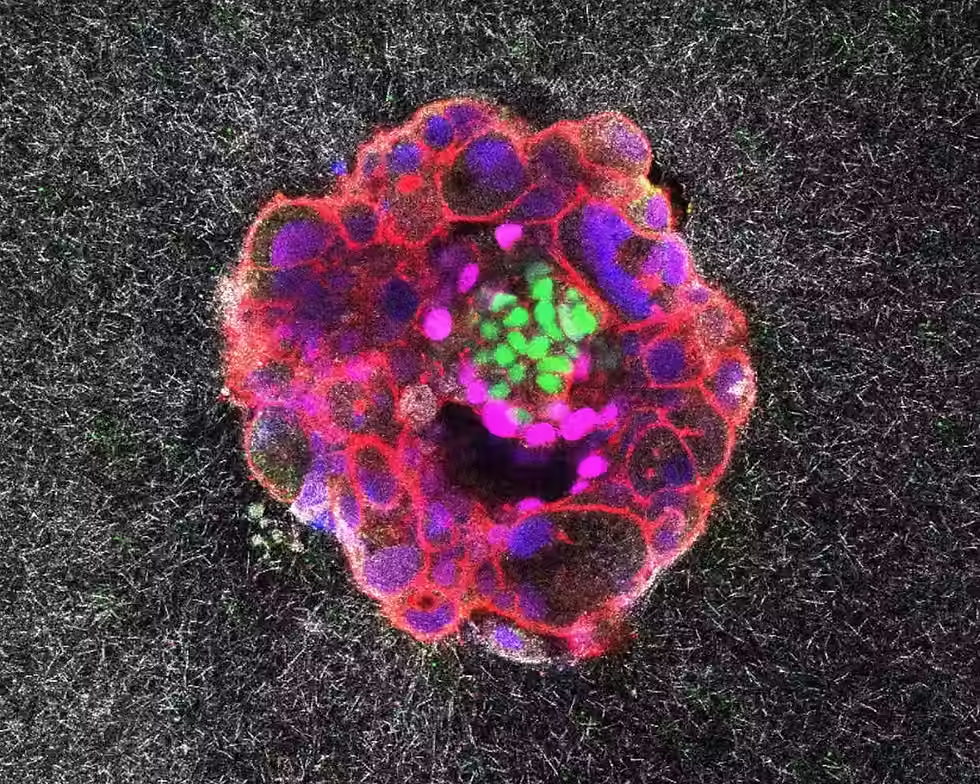Synthetic uterus enables the first footage ever of an embryo implantation
- Aug 25, 2025
- 1 min read

Spanish researchers captured the first video of a human embryo implanting in a uterus, which could help improve understanding of the natural process and improve fertility and assisted reproduction techniques.
60% of spontaneous abortions are caused by failure of embryo implantation, but prior knowledge of the process was based on still images captured at specific times during implantation.
Researchers at the Institute for Bioengineering of Catalonia developed a new approach methodology — a synthetic platform to mimic the uterus wall — using a gel composed of collagen, a common component of the uterus and other human organs, as well as other proteins necessary for embryo development. In the synthetic uterus, the researchers observed the process of implantation of both mice and human embryos using a microscope.
The team saw that when mouse embryos encounter the uterus wall, they exert forces on the uterus to adhere to it, and the uterus folds around them. The human embryos exert forces that make them penetrate the uterus completely.
"Our platform has made it possible to quantify the dynamics of embryo implantation and determine, in real time, the mechanical signature of the forces used in this complex process," said Anna Seriola, co-author of the study published in Science Advances.
This study also created a new platform to study the implantation process which can be key to improving fertility rates, optimising the quality of embryos and reducing the time it takes to achieve pregnancy in assisted reproduction.



